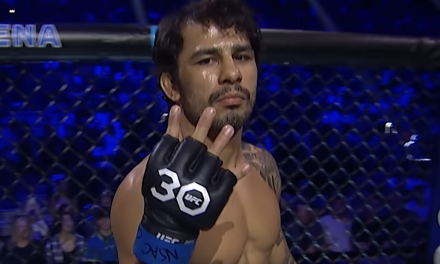In a country as diverse and multifaceted as the United States, political parties have long recognized the need to ensure that their representation is reflective of the nation’s varied demographics. To this end, the Democratic National Committee (DNC) has set its own goals for diversity, particularly in the selection of its delegates. However, recent findings have raised concerns within the DNC, revealing a significant shortfall in meeting these targets. Despite the Democratic Party’s long-standing advocacy for inclusivity and representation, its internal structures, particularly its delegation, have shown a lack of the ethnic diversity that it champions.
The Importance of Diversity in Representation
At the heart of democracy is the principle that governance should reflect the will and composition of its people. To this end, political delegates, who play crucial roles in shaping party platforms and selecting presidential candidates, must be representative of the broad swath of constituents. Without this representation, there’s a risk of alienating core demographics, which can lead to decreased voter turnout, a lack of trust in the party’s intentions, and ultimately, lost elections. Diversity goes beyond mere representation. By fostering an inclusive environment, political bodies can draw from a broader range of experiences, perspectives, and ideas. A homogenous group, irrespective of its competence, might miss out on crucial insights that a more diverse group could bring. This diversity of thought can lead to more robust policy formulations, greater resilience against groupthink, and an increased ability to relate to and cater to the needs of a broader range of constituents. Moreover, for the DNC, diversity isn’t just about representation; it’s intertwined with its very ethos. Historically, the Democratic Party has prided itself on being a ‘big tent’ party, accommodating varied interests ranging from urban progressives to rural moderates, from young activists to seasoned veterans. Embracing diversity is a reaffirmation of this identity, signaling a commitment to championing the rights and interests of all Americans, irrespective of their ethnic, social, or economic backgrounds.
The Current State of the DNC’s Diversity
While the Democratic Party’s voter base is undoubtedly diverse, spanning various ethnicities, cultures, and socio-economic backgrounds, this diversity has not been as prominently mirrored in the party’s higher echelons, especially among its delegates. The recent findings, revealing the DNC’s failure to meet its own diversity goals, are not just indicative of an oversight but underscore a deeper systemic issue. A more homogenous delegate selection might lead one to question whether the processes and criteria for selection are implicitly biased. Are there barriers, intentional or otherwise, that deter or exclude potential delegates from minority backgrounds? While these questions are uncomfortable, they are essential to address if the DNC hopes to rectify this disparity. Furthermore, this lack of diversity can have tangible consequences. When delegates convene to shape party policies or select presidential candidates, their decisions are shaped by their personal experiences and perspectives. A delegate body that doesn’t proportionally represent the party’s diverse voter base might inadvertently prioritize issues that resonate more with their demographic, potentially sidelining concerns vital to other groups.
The Imperative for Change
The DNC’s underrepresentation issue isn’t just a matter of optics; it’s a testament to the party’s commitment to its foundational principles. A party that campaigns on the ideals of inclusivity, equity, and justice needs to ensure that these ideals are reflected in its structures and operations. The diversity shortfall raises questions about the authenticity of the DNC’s commitment to these values, potentially undermining trust among its supporters. For many voters, particularly those from minority backgrounds, seeing delegates who resemble them, who share their lived experiences, and who can authentically champion their causes is a powerful motivator. It fosters trust, creating a genuine belief that the party isn’t just pandering for votes but is genuinely invested in their well-being.
Beyond the moral and philosophical arguments for diversity, there’s also a strategic imperative. The United States is undergoing significant demographic shifts. Minority groups are rapidly growing, both in numbers and political influence. By not adequately representing these groups, the DNC risks alienating a significant and growing portion of its voter base. It’s not just a matter of doing what’s right; it’s about ensuring the party’s continued relevance and electoral viability. The DNC’s current shortfall in ethnic diversity among its delegates presents both a challenge and an opportunity. It’s a wake-up call, highlighting an area of improvement, but it’s also an invitation to reaffirm the party’s commitment to its core values. By taking proactive steps to address this gap, the DNC has the chance to not only rectify a representation imbalance but to fortify its standing as a truly inclusive and representative political entity.
Steps Toward a More Inclusive DNC
To move from realization to action, the DNC must embark on a comprehensive strategy that addresses the root causes of its representation shortfall and establishes a framework for sustained inclusivity.
Assessing the Delegate Selection Process: The first step in addressing any issue is understanding its genesis. The DNC must conduct a deep dive into its delegate selection processes to identify potential barriers or biases. This could involve seeking external audits or creating internal task forces that can provide recommendations.
Mentorship and Development Programs: By investing in the future of potential delegates from diverse backgrounds, the DNC can cultivate a richer, more varied delegate pool. This involves identifying talent early, providing them with mentorship opportunities, and giving them platforms to grow within the party hierarchy.
Outreach and Community Engagement: A genuine connection with communities is vital. Regular outreach programs, town halls, and community dialogues can help the DNC understand the aspirations and concerns of minority groups, fostering a more genuine relationship and potentially identifying future leaders.
Transparency and Accountability: One of the most effective ways to ensure adherence to diversity goals is by being transparent about them. By regularly publishing delegate diversity statistics and updating the public on their progress, the DNC can hold itself accountable and showcase its commitment to change.
Affirmative Action: While contentious, affirmative action can be an effective short-term measure to address representational imbalances. By setting aside delegate positions for underrepresented groups, the DNC can send a strong signal about its commitment to diversity. However, this needs to be balanced carefully to ensure that it doesn’t lead to tokenism or undermine the meritocratic principles of delegate selection.
Cultivating Partnerships: Partnering with organizations that champion minority rights and interests can provide the DNC with invaluable insights and access to a pool of potential delegates who are already engaged in activism and community service.
Ongoing Education and Training: It’s essential to recognize that the push for diversity is not a one-off effort. Ongoing training sessions on topics like unconscious bias, cultural sensitivity, and inclusivity can ensure that the DNC remains vigilant and proactive in its commitment to diversity.
The Broader Implications
While the immediate discussion is centered around the DNC’s delegate diversity, the implications of this conversation stretch far beyond. A party’s internal dynamics often mirror its external strategies. By taking steps to be more inclusive internally, the DNC not only strengthens its representation but also signals to its voters that its commitment to diversity and inclusion isn’t mere rhetoric. A more inclusive DNC can lead to policy formulations that genuinely cater to the needs of all Americans. It can foster campaigns that resonate with a broader range of voters, and it can inspire future generations to see politics as an accessible and welcoming space, irrespective of their ethnic or socio-economic backgrounds.
The United States is often referred to as a ‘melting pot’ – a nation where diverse cultures, beliefs, and traditions come together to create a rich tapestry. In this context, the DNC’s commitment to diversity isn’t just a nod to political correctness; it’s a recognition of the very essence of the nation it seeks to represent. In taking concrete steps toward a more inclusive future, the DNC has the opportunity to not only rectify its current shortcomings but to set a standard for political entities everywhere. It’s a chance to show that in the quest for a more equitable and just society, actions indeed speak louder than words.
Embracing America’s Multifaceted Identity
































South Florida Media Comments